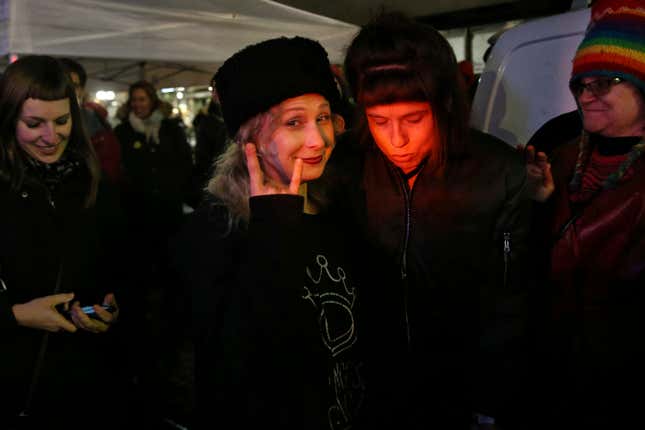Pussy Riot’s Frontwoman Escaped Russia in an Epic Way: ‘It Sounds Like a Spy Novel’
Disguised as a food courier, Maria Alyokhina successfully fled Russia in protest of its war on Ukraine.
EntertainmentEntertainment

“Virgin Mary, Mother of God, drive Putin away!” the ski-masked members of Pussy Riot scream-sang from the altar of Moscow’s Christ the Savior Cathedral in 2012, during a demonstration that lasted less than a minute before church security forcibly removed them. When the punk protest band debuted one year earlier, Pussy Riot became notorious, not just for their often cacophonous criticism of capitalism, religion, and naturally, Vladmir Putin, but for their guerilla-style protest performances. Some considered the protests badass, while others called them bonafide blasphemy, but one thing was clear: Pussy Riot, a group comprised entirely of anarchist women, had planted their boots on the neck of the Russian government.
Now—a decade of activism later—it’s Maria Alyokhina, one of Pussy Riot’s frontwomen, that’s been driven away.
-

-

-

-

-

-

-

-

-

-

-

-

-

-

-

-

-

-

-

-

-

-

-

-

-

-

-

-

-

-

-

-

-

-

-

-

-

-

-

-








































